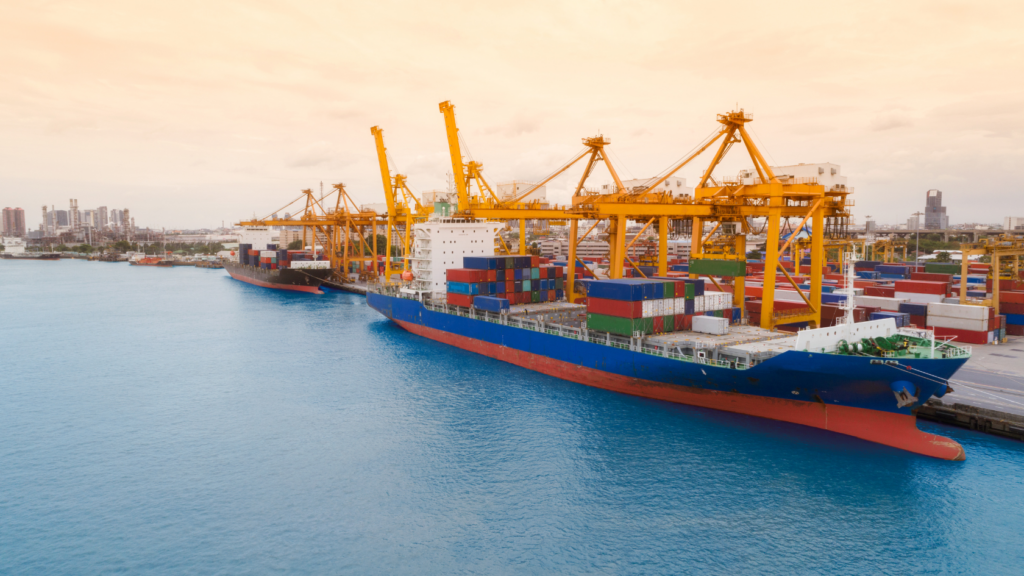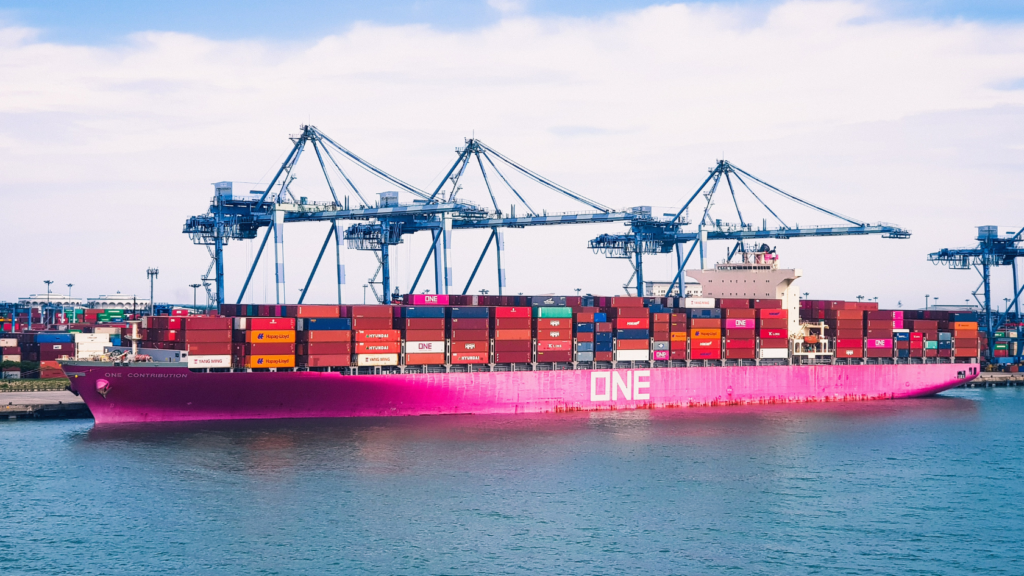VQIP Deadline, Falling Rates, Agreement on the Horizon, US Trade Deficit, and Per Diem Billing Changes.
Your weekly All-Ways round-up of supply chain news.

VQIP Portal May 31 Deadline
The voluntary fee-based program, VQIP, ensures that importers who follow the safety and security protocol and maintain it in their supply chains can benefit from expedited review and importation of human and animal foods into the US.
The application portal which opened on January 1, 2023, will close on May 31, 2023, for fiscal year (FY) 2024.
Every one of the foreign suppliers of food set to be imported under VQIP must have valid facility certifications issued by a certification body (CB) accredited under FDA’s Accredited Third-Party Certification Program (TPP) before applying.
Importers of foreign suppliers who want to be eligible for VQIP must contact an accredited CB under TPP to request a regulatory-approved audit.
Interested in applying for VQIP benefits during (FY) 2024? Visit:
- Voluntary Qualified Importer Program
- Submission of VQIP Application User Guide
- Voluntary Qualified Importer Program (VQIP) Informational Webinar Recording
- Public Registry of Accredited Third-Party Certification Bodies
Questions may be submitted to the VQIP Importers’ Help Desk via 1-301-796-8745 or via email to [email protected].
Tumbling Down
Slower US import demand and already full capacity in warehouses are causing rates to fall fast on the trans-Atlantic route.
While some believe this is rock bottom for rates on trans-Pacific and Asia-Europe trade lanes, headhaul trans-Atlantic rates are getting closer by the week to pre-pandemic levels.
“The trans-Atlantic held up for longer than many of the other trades, but now you are seeing a similar correction as elsewhere,” Rolf Habben Jansen, Hapag-Lloyd CEO said.
📉 Rates have reached the lowest level since February 2021 according to Platts. In the last week alone, rates tumbled to $2100 per FEU or 19% from North Europe to US East Coast rates. Rates were at $6000 per FEU in early January.
📉 Xeneta showed a similar decline with a rate of $1,899/FEU or 64% since January 1. In comparison, the pre-pandemic rate on May 9, 2019, was at $1,084/FEU.
📉 Drewry’s World Container Index indicated that Rotterdam to New York rates was down 30% since the beginning of January at $4,783/FEU.
Jansen believes that the US trade across the Atlantic is faring better than that of the Pacific.
“When you look at it structurally, the US will still see a shift of cargo that's currently being sourced across the Pacific and that will instead go across the Atlantic in the future,” he said. “Whether that's going to be from Egypt, Turkey, or India, I don't know.”
On the Bright Side
Numbers from the Sea-Intelligence Maritime Analysis show that carriers aren’t heavily pushing blank sailings. Even though there's a lot of vessel space and falling rates, carriers have only withdrawn 3.1% of capacity in April, and 2% of capacity is set to be pulled out in May.
Alcohol demand has, unsurprisingly, remained strong across all markets according to Alison Leavitt, managing director of the Boston-based Wine and Spirits Shippers Association.
“From Europe, there is plenty of capacity, and schedule reliability has been much better over the last four months,” Leavitt said. “Blank sailings have been fairly minimal as of now, but if vessel usage drops further, I am sure we will start seeing more blanking.”
Significant improvement has been made in Trans-Atlantic westbound schedule reliability in March. Sea-Intelligence’s data showed that the rate was at 48.1% or one in every two vessels arriving 4.47 days late on average. In March 2022, that number was at 17.5% with a 9.45-day delay on the average late vessel.
According to PIERS, US import demand from North Europe in January increased 9% year over year but then began to fall 5.7% in February and 16.3% in March in comparison to the same periods last year.
Done Deal?
Agreements have been reached on several issues leaving room for the possibility of a contract being finalized between the International Longshore and Warehouse Union and the Pacific Maritime Association concerning the more than 22,000 west coast dockworkers. Negotiations have been going on for over a year and US importers are more than ready to be relieved of this headache as they head into their crucial fall selling season.
“The goal is to have smoothly operating supply chains and fluid ports, so the sooner [they] can get the negotiations wrapped up the better,” Jessica Dankert, vice president for supply chain at the Retail Industry Leaders Association, stated.
Although a tentative agreement on healthcare benefits was reached a month into negotiations last July, local issues at individual ports have held back the proceedings.
Recent job actions by the ILWU have caused delays at the West Coast ports. In the past, disputes have been the root of backups at the ports and retailers are not taking chances. When possible, cargo has been diverted to the Gulf and East Coast ports. It may be months before a complete agreement is signed. Until then, retailers intend on keeping the cargo out of the West Coast gateways.
Automation on the docks has been a major point of contention but a resolution has been reached on the matter. The major hurdles left are the issues of wages and pensions. The ILWU is likely to demand an increase to at least match that of the ILWU local chapter in Hawaii at a 10% pay increase in the first year of the new contract. Additionally, the contract duration must be determined with the PMA pushing for a six-year contract and the ILWU pushing for a two-year contract. Whenever the agreement is reached, it will be retroactive to when the last contract expired, July 2022.
Ups and Downs
The monthly U.S. trade deficit in goods and services fell 9.1 percent in March as exports rose but imports fell.
Imports slid 0.3 percent from February to $320.4 billion. Imports of goods were down 0.5 percent to $260.9 billion, with decreases of $1.5 billion for cell phones and other household goods, $900 million for other petroleum products, and $600 million for semiconductors as well as increases of $1.3 billion for finished metal shapes, $800 million for drugs, and $600 million for other textile, apparel, and household goods. Services imports were up 0.2 percent to $59.5 billion.
Exports gained 2.1 percent in March to $256.2 billion. Exports of goods were up 3.1 percent to $174.3 billion, with increases of $2.5 billion for crude oil, $1.1 billion for fuel oil, and $600 million for natural gas liquids along with a decrease of $1.0 billion for non-monetary gold. Services exports were up 0.1 percent to a record $81.8 billion.
With exports up and imports down, the monthly U.S. trade deficit decreased from $70.6 billion in February to $64.2 billion in March. The deficit in goods trade was down 6.9 percent to $86.6 billion while the services trade surplus slipped 0.4 percent to $22.4 billion.
For the year to date, the total U.S. trade deficit is down 27.6 percent for the same period in 2022, with exports up 8.7 percent and imports down 1.6 percent.
Closed Deal
Ahead of the final rulemaking in per diem billing from the Federal Maritime Commission (FMC) coming to a close next month, many ocean carriers will not levy detention and demurrage fees when terminals are closed. This comes on the heels of an FMC ruling in which Evergreen Marine was to refund a trucking company upward of $500 after they were charged when a terminal was closed for a holiday in 2020.
With MAERSK being the pioneer carrier followed by HMM, Hapag Lloyd, and Mediterranean Shipping Co., Ocean Network Express (ONE) is the latest carrier to join. The carrier put out a statement that effective June 1, if the terminal is “completely closed or inaccessible,” customers will not be charged detention and demurrage fees. Customers are instructed to contact ONE for other arrangements if it’s not possible to make an appointment during open-gate hours. This does not include export demurrage.
“ONE applies the new calculation logic to charges related to import demurrage, import detention, and export detention charged by ONE,” the carrier said.
These announcements have generated pushback from marine terminal operators (MTOs) who claim carriers are jumping the gun. Such action would cause facilities to lose income. Some ports like the Port of Houston have increased their weekday charges to cover lost revenue from closed gate time. Other ports like the Port of New York and New Jersey are opening more gate hours so that they can continue charging over the weekend.





